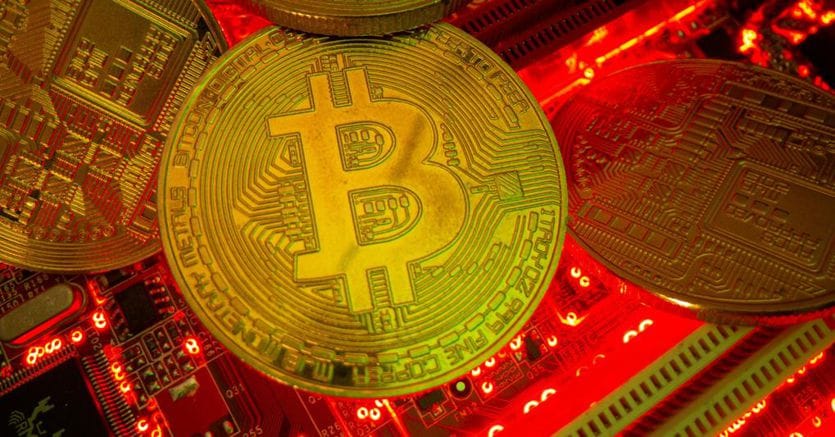Population: 6.5 million. GDP: 27 billion dollars. The small Central American country El Salvador may be the first in the world to declare Bitcoin a fiat currency. 39-year-old president Nayib Bukele seems to want to get serious enough to have changed his twitter profile photo by adding “laser eyes”, the symbol used by the “maximalists” of the Bitcoin community. The ball now goes to Parliament (to which the president has said he will deliver a bill). The announcement came over the weekend in Miami during the “Bitcoin conference” (which was attended by 50 thousand fans, an absolute record compared to previous similar events) by Jack Mallers, founder of the Strike digital payment platform that uses Lighting Newtork , a technology that comes from the Bitcoin blockchain but does not use it for transactions. Consequently it is a little less secure but definitely faster (with the blockchain the transactions are not approved before 10 minutes, with the second the payments are instant). This is why it is used for micro-payments.
So the ground is ready. The Parliament’s ok is missing. If the authorization arrives, there could be two effects: 1) it is not certain that the International Monetary Fund (which Bloomberg asked yesterday has not commented on) will take it well. In the worst case scenario, this could jeopardize the ongoing negotiations for a $ 1 billion loan; 2) El Salvador could become a crypto-friendly country and trigger a ripple effect. On this front yesterday, again on twitter, some parliamentarians from Paraguay and Tonga were highlighted, opening up to a possible emulation of the El Salvador strategy.
Loading…
However, one wonders why in the face of news of this magnitude the price of Bitcoin did not react, wandering without force in the area of 36 thousand dollars, less than half of the maximum of 64,500 dollars reached on 12 April. “At the moment it is more of a marketing operation, designed to attract investments than a revolution – explains Marco Cavicchioli, crypto divulger -. However, there is the possibility that El Salvador will open a small crack in the dam that today contains the global spread of Bitcoin. We’ll see”. Paraguay and Tonga therefore stood at the window waiting to understand how the courageous attempt of the “Republic of the Savior”, a country without official currency (since 2001, the colon has in fact been replaced by the dollar) will go. An attempt that is supported by the fact that Bitcoins are already “running” in the country. The many expatriates who send money to family members – according to the World Bank in 2019 the value of remittances stood at 6 billion dollars, over a fifth of GDP – do so through the cryptocurrency door because in this way they save commissions compared to the sending dollars. And therefore, given that Bitcoin is already part of this economy, the president would be trying to kill two birds with one stone because by declaring the cryptocurrency legal tender, at that point entrepreneurs and investors in the sector would automatically pay no more taxes by moving to El Salvador. on the capital gain. It is no coincidence that Justin Sun, founder of the blockchain-based operating system Tron (same name as the native token) has already announced that he would be ready to open an office in the country.
Obviously, if everything goes through, El Salvador will also have to buy Bitcoin and deposit them in its treasury. On balance, however, in this sense it would not be the first country to hold them. According to the census of Bitcointreasuries.org, Bulgaria and Ukraine also have the most important cryptocurrency in the world: in the coffers of Sofia there are 213,519 Bitcoins, equal to a value of 7.6 billion dollars, or 11% of GDP. . In Kiev, on the other hand, there would be 46,351 Bitcoins equal to 1.7 billion, equal to 1.2% of GDP. But there is a mystery, especially as regards Bulgaria. “We know that years ago the Bulgarian government issued a press release in which it declared that it had seized Bitcoins used by illegal companies – explains Cavicchioli -. The statement was later removed and the government denied it. But in fact, no proof of the sale has been given and therefore the yellow remains to this day in the maze of the blockchain. As for Ukraine, the purchases were made by officials of state agencies. So in this case there are less doubts ».
So while the authoritarian China is hardening towards crypto having recently banned mining and trading crypto with yuan (but not crypto with crypto) other countries are going in the opposite direction. Bitcoin, after all, is divisive by nature. If governments think differently, the same happens in the investor audience where there are those like Warren Buffett who define it as “rat poison” and those like Ray Dalio who prefer it to US government bonds. In this parallel world, half measures do not exist.
